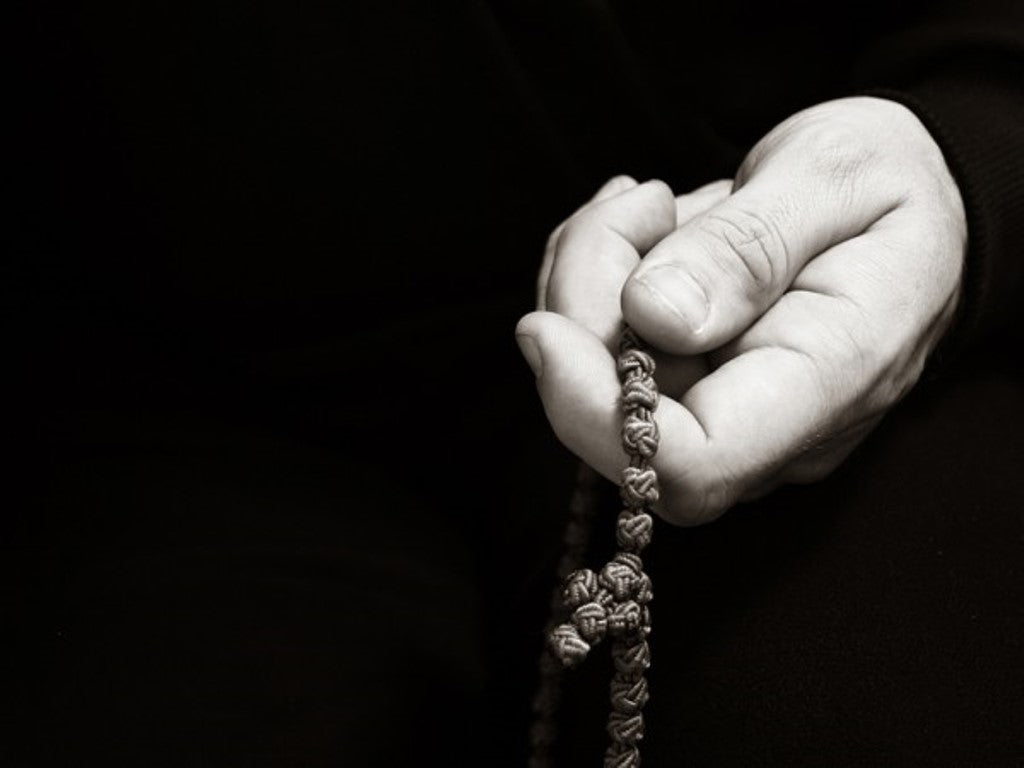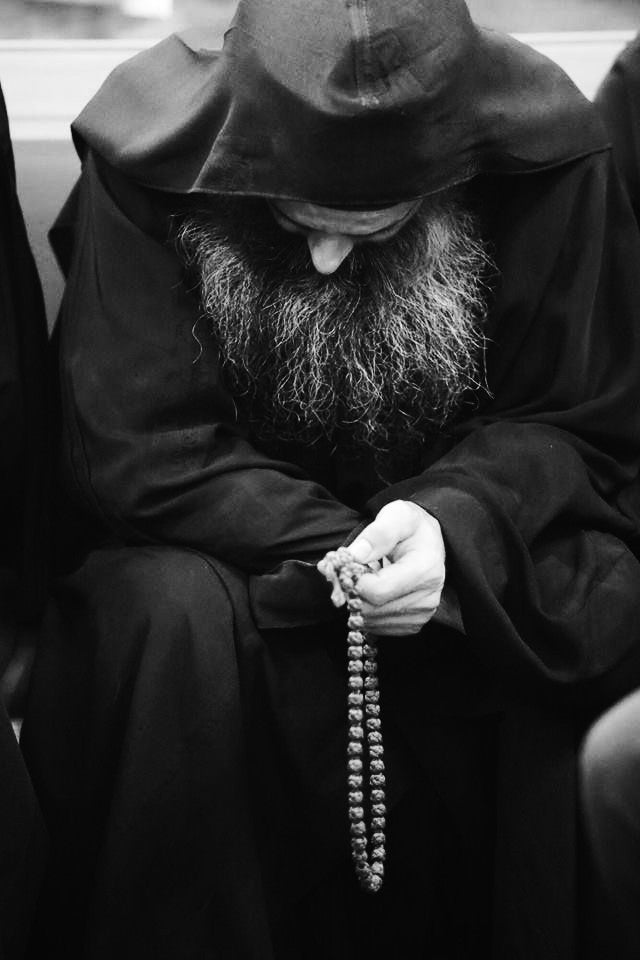THE JESUS PRAYER
breathe the Name in silence

“Lord Jesus Christ, Son of God, have mercy on me, a sinner.”
These simple words are at the heart of one of the oldest spiritual practices of the Orthodox Church: the Jesus Prayer.
Short, repeated endlessly, this invocation becomes, for those who adhere to it with faith and patience, a breath of fresh air for the soul, an inner light, a secret battle - and an encounter.
A Prayer for Sinners
Jesus' prayer is not a magic formula. It is a cry, sometimes silent, that springs from the heart of those who recognize themselves as sinners and call for mercy.
It is based on the words of the Gospel, when the tax collector simply said:
“Lord, have mercy on me, a sinner.” (Luke 18:13)
But in the Orthodox tradition, this prayer has been deepened, cultivated, transmitted, notably by the monks of the desert, the hesychast Fathers and the ascetics of Mount Athos.

Hesychia: the silence of the heart
The word hesychia in Greek means calm, deep silence.
The hesychast is one who seeks inner peace, not by fleeing the world but by passing through it with the Name of Jesus in his heart.
The spiritual masters of this path—such as St. Gregory the Sinai, St. Gregory Palamas, or the elders of Mount Athos—teach that this prayer, said with attention and humility, descends into the heart and can become continuous, even during sleep.
A prayer of breath and blood
Some monks pray it in rhythm with their breathing:
Inspiring: Lord Jesus Christ, Son of God
As I breathe out: have mercy on me, a sinner
Others repeat it with their heartbeat, or with every step in nature, every daily gesture.
Prayer then becomes embodied, rooted in the body, in the whole being.
A famous anecdote in Athonite tradition tells of a monk whose disciple, approaching his cell at night, heard a voice softly murmuring the prayer:
“Lord Jesus Christ, Son of God, have mercy on me, a sinner…”
But the monk was sleeping soundly.
It wasn't his mouth that prayed, it was his heart.
In hesychastic teaching, this is called the prayer of the heart made automatic, or prayer without ceasing, as St. Paul recommends:
“Pray without ceasing.” (1 Thessalonians 5:17)
This kind of testimony does not speak of mystical ecstasy, but of a state of profound inner transformation, the fruit of years of asceticism, humility and patience.

Why carry this prayer with you?
The Lord Jesus Christ, have mercy on me — a sinner t-shirt isn't just for show.
He is there to carry the Name, to recall the only necessary prayer, to provoke an inner silence.
It’s a garment that says what we don’t always dare to say:
I need mercy. I need God. I am a sinner, but loved.
To read and see
To go further, we advise you to read:
“Tales of a Russian Pilgrim,” a founding text of the Orthodox spiritual tradition.
This book tells the story of a man's journey as he learns, step by step, to pray without ceasing through Jesus' prayer. Simple, profound, and moving.